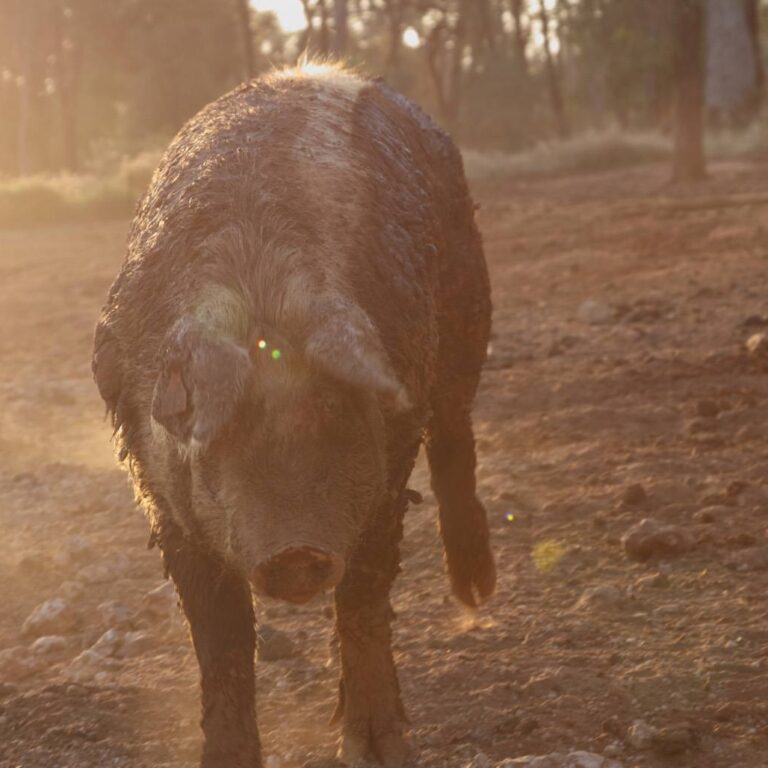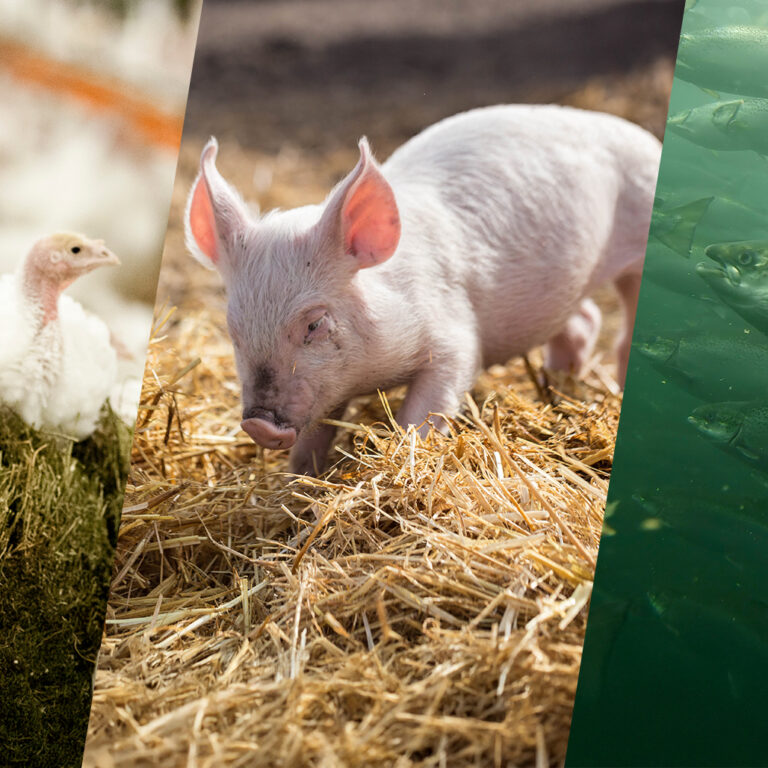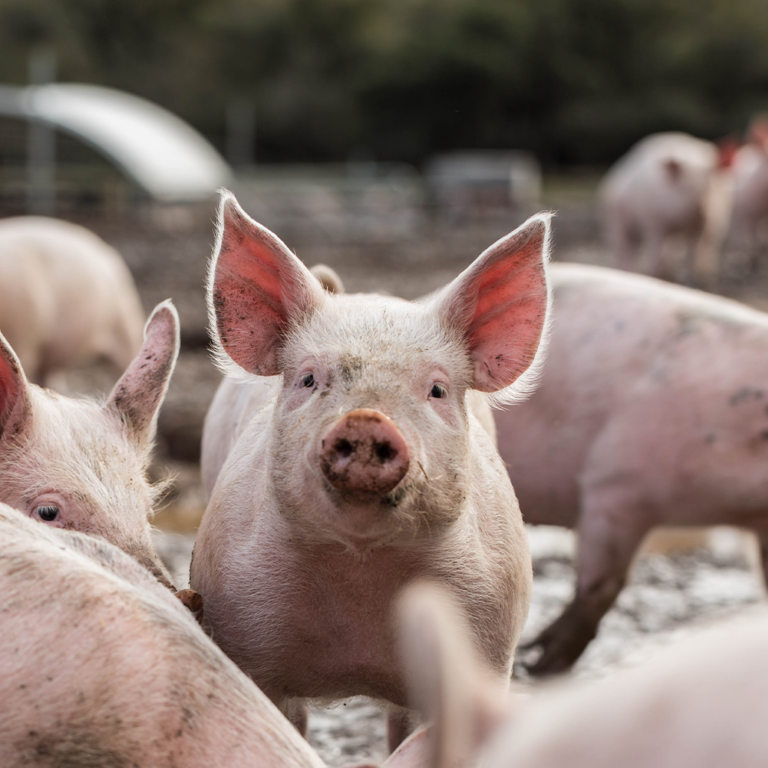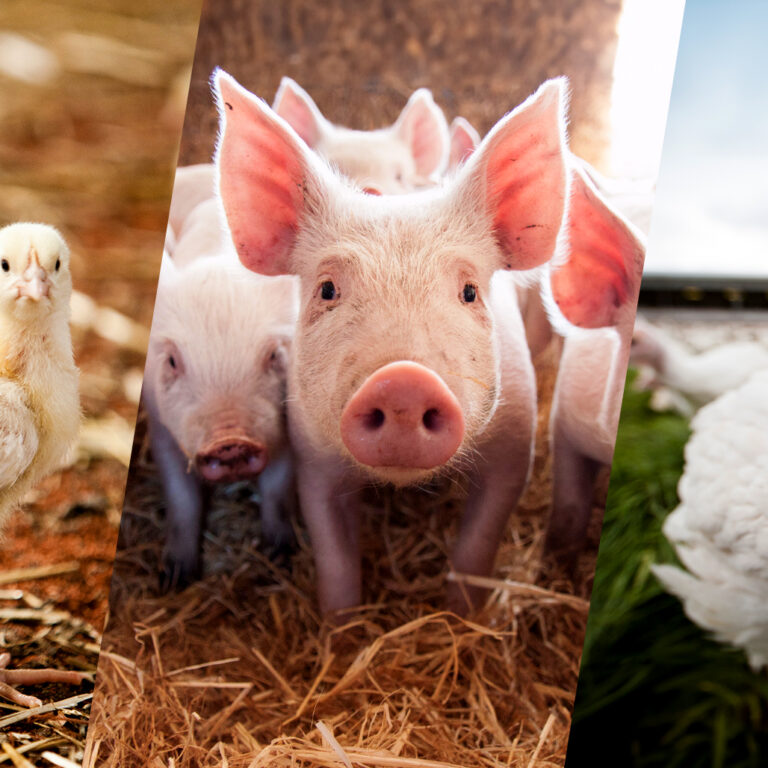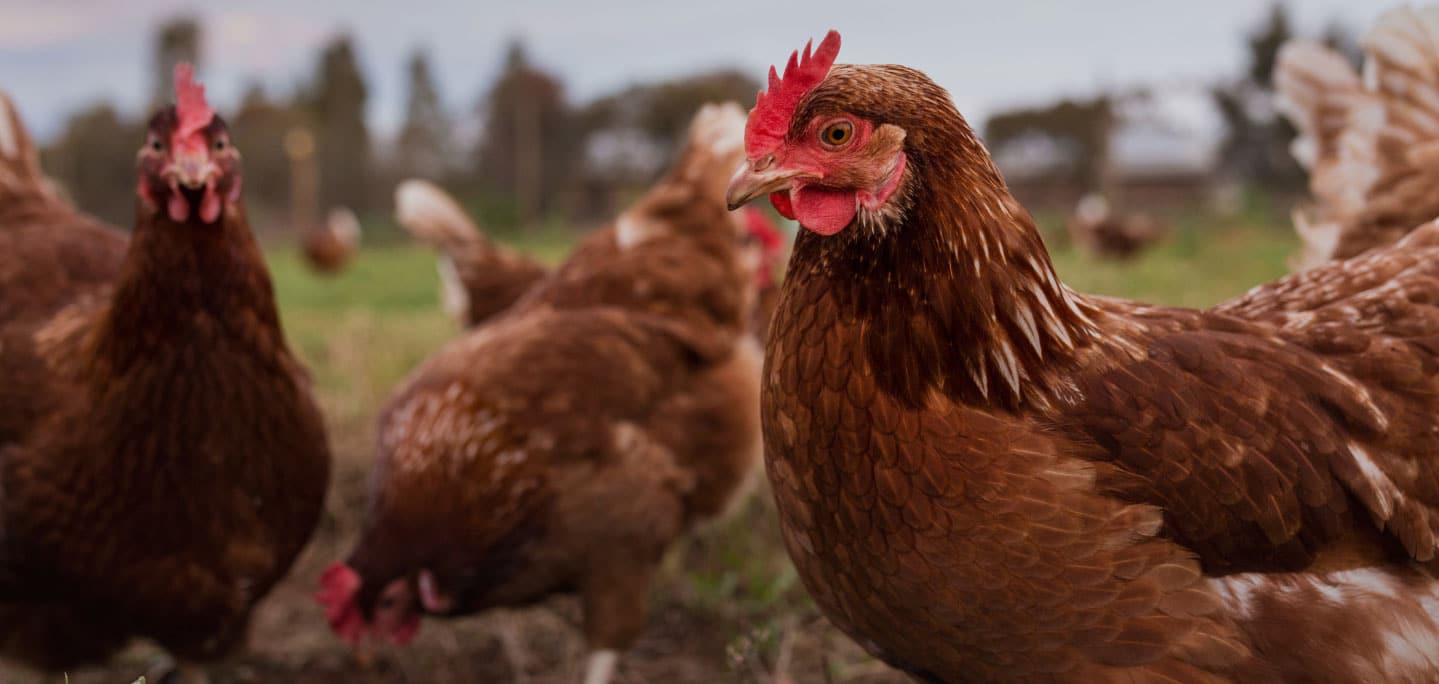With Mother’s Day fast approaching many of us will be spending the weekend enjoying great food and the company of our loved ones. And whether you’re planning a feast at home or looking forward to something cleverly whipped up by the chef at your favourite eating spot, there’s something we can all do to make Mother’s Day really count. I’m talking about giving our voice to the mothers whose welfare sadly remains one of the most compromised in Australian farming – pigs.
What’s the issue?
Around the world, the most common way to raise pigs for pork products is very tough on mothers. In intensive conventional systems, a sow (mother pig) is confined in barren stalls for most of her adult life. During her pregnancy, she’ll be kept in a sow stall with barely enough space to stand. When she’s ready to give birth, she’ll be moved to a narrow farrowing crate until her piglets are weaned. Sows – who are known to be highly intelligent with some experts ranking their intelligence after humans, primates, whales and dolphins – endure this confinement for years, suffering both mentally and physically. Unable to exercise, their muscles and bones deteriorate, meaning they often struggle standing and lying down.
Recently, consumers have seen positive changes in the Australian pig industry, with a move towards indoor group housing of pregnant sows and a phase out of sow stalls due to be completed by 2017. Group housing of pregnant sows is a huge improvement and the Australian pig industry is to be congratulated for taking this step. The next thing is to tackle farrowing crates. Sows are placed into farrowing crates up to a week before giving birth, and stay in these crates until their piglets are weaned at 3-4 weeks of age which means sows are unable to fulfil instinctive nesting and motherly behaviours. It’s also still not a requirement to give sows (while in group housing and farrowing crates) straw for foraging and comfortable dry bedding to lie down on, rather than the concrete or slatted flooring. So there’s still work to be done!
Making Mother’s Day count
There’s no doubt that bacon is a popular breakfast side, but if you’re eating bacon (or any pork) it’s so important to make sure it’s humane. If you’re eating out, ask if the bacon or pork on the menu is free range or bred free range or from higher welfare indoor systems – this means that it’s come from pigs whose mothers enjoyed the freedom to access the outdoors or have space indoors to explore, forage and socialise. Did you know that over 70% of processed pork – and that includes ham and bacon – is imported? Buying Australian pork means you’re supporting Aussie farmers in their efforts to improve sow welfare.
Support venues putting humane food on the menu
The RSPCA has an online directory of eateries that are proud to serve cage-free eggs – choosewisely.org.au – check it out and ask if they choose humane pork options too!
Remember, that if you’re local isn’t listed and you know they use humane food, you can sign them up.
Choosing RSPCA Approved for your home
If you’re frying up some bacon at home, RSPCA Approved pork is always a good option. Pigs are reared in a well-managed outdoor system, in an enhanced indoor environment or a combination of both. These systems cater for the pigs’ behavioural and physiological needs by providing environmental enrichment, including straw for foraging and nest building and sufficient space to move freely. The RSPCA’s Standards certainly don’t allow for sow stalls or farrowing crates! Look for RSPCA Approved in your supermarket or butcher and if you can’t find it, ask your local store to stock it.
**
Here’s a short video of pigs on RSPCA Approved farms who get to do the things pigs like to do!

